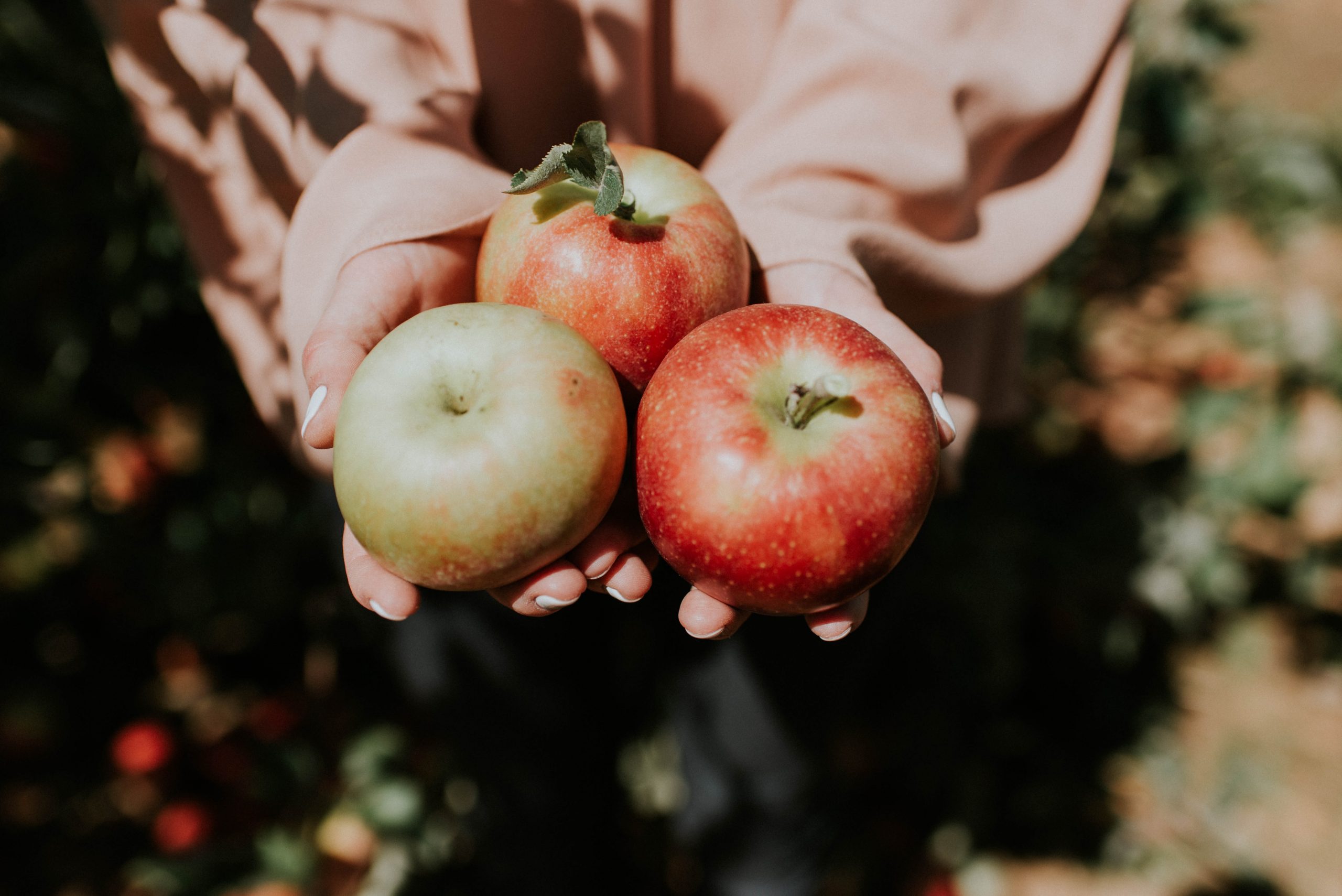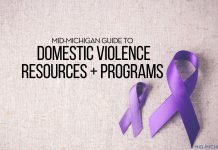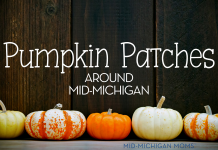What do you see when you go to a grocery store? Food, obviously. Do you read labels? Sure, we all do. When you see a box of Cheerios with “gluten-free” on it, do you even take notice? Did you know that Cheerios never contain gluten? Shocker, right?
When I go to the store, I notice these things. I see products with the “certified non-GMO” label, but they don’t include ingredients that are considered GMOs. For example, you can buy certified non-GMO orange juice, but there are no GMO oranges – so why put a label on something like that? It’s simple, really. Marketing.

Most consumers see these labels and think “healthy,” and they pluck that product from the shelf over the same product without the label. But why do consumers believe these labels make things healthier? I don’t think it’s because they are uneducated. No, not even a little. I think it’s because most people trust what they see on packages.
The more that consumers understand their food labels, the better.
First off, a little about me: I am college educated, work in agriculture and am a bonified farm wife and mom. I believe in modern agriculture wholeheartedly. I don’t buy organic food all the time, I trust in GMOs, and I don’t think you should go gluten-free unless you have to.
There, I said it.
What I said above is how I feel. I want you to know that I am NOT saying organic is terrible, or gluten-free is the worst, or that you have to buy GMOs. I’m not saying that you can’t buy “all-natural” or “organic” or even almond milk {as a dairy farmer that kills me to say, because nut milk isn’t even milk}. Everyone is entitled to their own opinions and choice of food. One of the great things about our food supply is that we have those choices available! I can buy the food I want for my family and each of you has the same freedom. As for my beliefs, I don’t just feel this way out of willy-nilly hoopla, but I believe the abundance of research and scientific evidence that has been published and presented.
Let me throw some definitions at you straight from the Merriam-Webster dictionary:
Organic: pertaining to, involving, or grown with fertilizers or pesticides of animal or vegetable origin, as distinguished from manufactured chemicals
GMO {Genetically Modified Organism}: an organism or microorganism whose genetic material has been altered by means of genetic engineering
Gluten: the tough, viscid, nitrogenous substance remaining when the flour of wheat or other grain is washed to remove the starch
All-Natural: being or composed of ingredients that are from nature and not artificial
So, to simplify things:
Organic foods are foods that have been grown or farmed without the use of artificial chemicals, hormones, antibiotics, or genetically modified organisms. It takes three years for crops that are grown on farmland to be considered certified organic. Also, just because it’s organic does not mean that there are no pesticides, herbicides, and fertilizers. They are exposed to their “natural” counterparts. Actually, many commonly used pesticides, herbicides, and fertilizers are used in both organic and conventional food production.
When looking at GMOs, there are not as many as people think. There are only eleven genetically modified crops grown in the United States. {Click here to see a timeline.} Of those eleven, only nine are used in food production. The crops in food production are apples, potatoes, field corn, canola, soybeans, rainbow papaya, sugar beets, sweet corn, and summer squash. The other two are cotton, which is used for fiber, cottonseed oil and animal feed, and alfalfa, a forage used for animal feed.
 As far as gluten goes, that definition might be a little tough to get through. Gluten {think of gluten like glue, it holds food together} is a generic name for proteins found in wheat, rye, barley, and triticale {a cross of wheat and rye}. The food product must not contain any of the cereal grains listed above to be gluten-free.
As far as gluten goes, that definition might be a little tough to get through. Gluten {think of gluten like glue, it holds food together} is a generic name for proteins found in wheat, rye, barley, and triticale {a cross of wheat and rye}. The food product must not contain any of the cereal grains listed above to be gluten-free.
All-natural or 100% natural means that there are no preservatives, ingredients are minimally processed, and there is nothing artificial. My biggest pet peeve about this label is that this claim is not regulated. If it isn’t regulated or certified, can you really trust it? What that means is that virtually anyone can put that label on a package if they wanted to.
Now, moving on.
I’ll be honest; I buy organic sometimes. I buy things that say “All-Natural” because those words are a staple on food products for children. I buy things that have a “non-GMO” label and a “gluten-free” label. In our house, we go through about a million Go-Go Squeeze pouches. These, in particular, have a “non-GMO” and “gluten-free” label. Yes, they don’t contain GMO apples. True. But consumers see that “gluten-free” label and are misled because apple sauce would never contain gluten in the first place. I’m obviously not scared to buy GMO apples, and I don’t feel obligated to purchase products with a non-GMO label. I want consumers to feel this same trust in our food products and modern agriculture.
MYTH: Farmers soak, douse, & drench their GM crops in pesticides.
FACT: A typical pesticide application on GM soybeans is around 22 oz. of active ingredient per acre. {That’s less than 2 soda cans!}
~Source: GMOAnswers.com
Here is the thing… it’s a marketing ploy for companies to sell more products. This drives me nuts! I wish people knew there was no such thing as non-GMO tomatoes, raisins, or even salt. Just because something is on the label doesn’t mean that there is a GMO version of the same product, or that you should pay more for those words on the label. I wish the general consumer knew that Rice Chex don’t contain gluten, ever. Why? Because Rice Chex are just that, rice. But if you walk down the cereal aisle, you would see the box says “gluten-free.” Unfortunately, marketing is taking over the truth of agriculture. It is causing people to fear their food and believe in the packaging.
I know there is, and most likely, will always be some concern with GMOs. The biggest concern I’ve heard? Are GMOs safe? The answer is yes! The website GMOAnswers.com {linked above} is an excellent source to learn more.
I don’t support misleading labels or claims, but I do support other farmers. I personally know plenty of farmers that grow both conventional and organic crops on their land. It happens all over the country. But… just because it says organic, it doesn’t necessarily mean healthier for the consumer. It just means a farmer out there is growing a crop differently than my family of conventional farmers.
I don’t want anyone to change their opinions or their buying preferences. I want people to look into what some of these terms on their food labels mean. It takes just a few minutes of research to become more educated about the food you are purchasing. I want people to know that “no sugar added” doesn’t mean it isn’t chalked full of artificial sweeteners, because it likely is. {Fun fact from the sugar industry: technically sugarbeets are a GMO crop, however, since sugar itself doesn’t contain any DNA, it is not a GMO. So, please buy all that good sugarbeet sugar! It’s local to mid-Michigan, so that’s even better.} I would much rather have natural sugar, but that’s just me.
So, no I don’t buy purposely buy organic and I do believe GMOs are safe, I trust in our food system and modern agriculture. I choose to learn and understand the misleading labels out there, and I don’t spend extra for things that I know don’t exist or don’t need.
What is most important is that you feel like you are making the best choices for you and your family. I believe I am, and I encourage you to do the same – no matter what that is.















